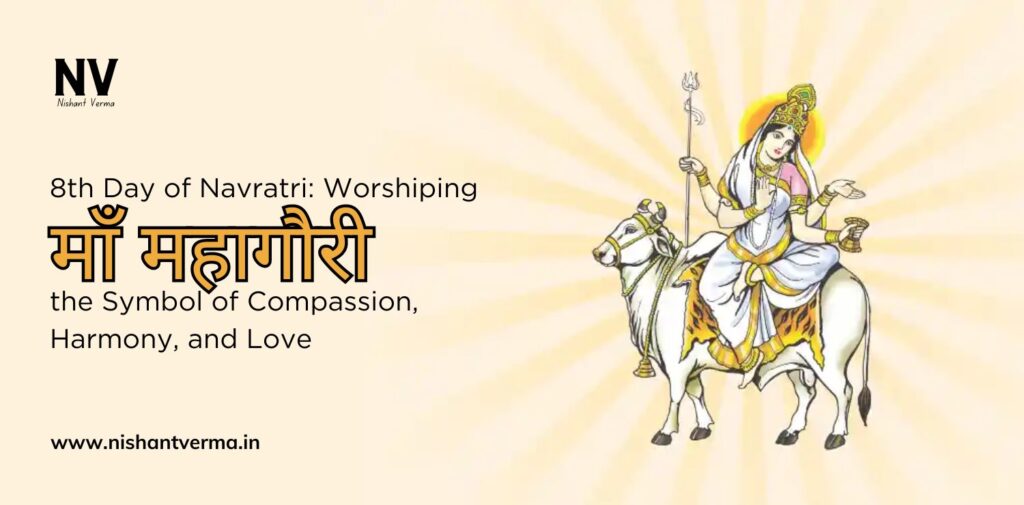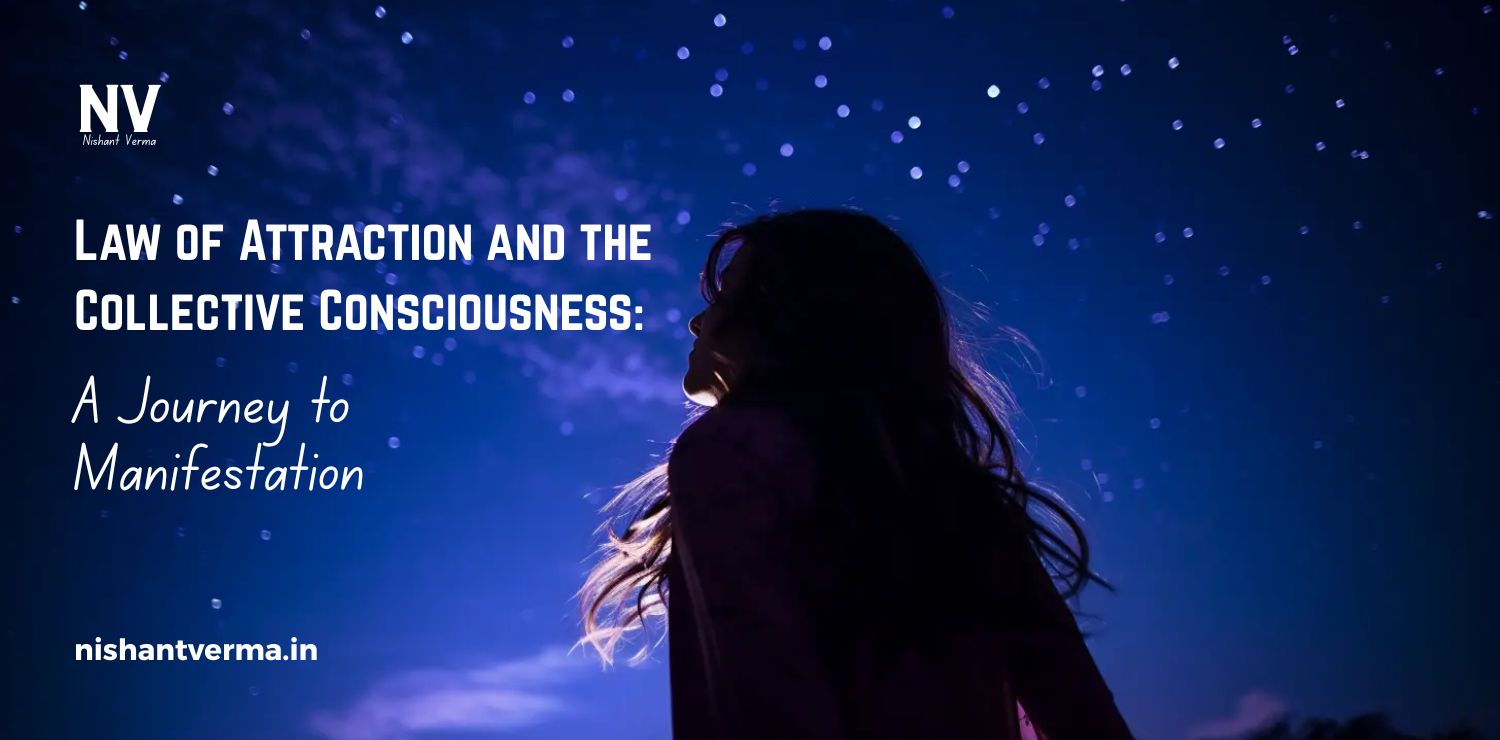Navratri, a vibrant and joyous festival celebrated over nine days, is dedicated to the worship of the nine forms of Goddess Durga. Each day represents a distinct aspect of the Goddess, and devotees pray to these forms for blessings, prosperity, and protection. The eighth day of Navratri is devoted to Goddess Mahagauri, who symbolizes purity, compassion, harmony, and love.
Who is Goddess Mahagauri?
Goddess Mahagauri is the eighth form of Navadurga. Her name “Maha” means great, and “Gauri” means fair or white, representing her radiance and purity. Mahagauri is depicted as a beautiful young woman with a serene and compassionate expression. She is seen dressed in white attire and seated on a bull (Nandi), which signifies calmness and stability. With her four hands, she holds a trident (trishul), a drum (damru), and a lotus flower, while one of her hands is in the blessing posture.
Mahagauri is often associated with the energy of forgiveness and inner peace. She is believed to cleanse the devotees’ hearts and minds of all negative energies and help them attain spiritual wisdom and enlightenment.
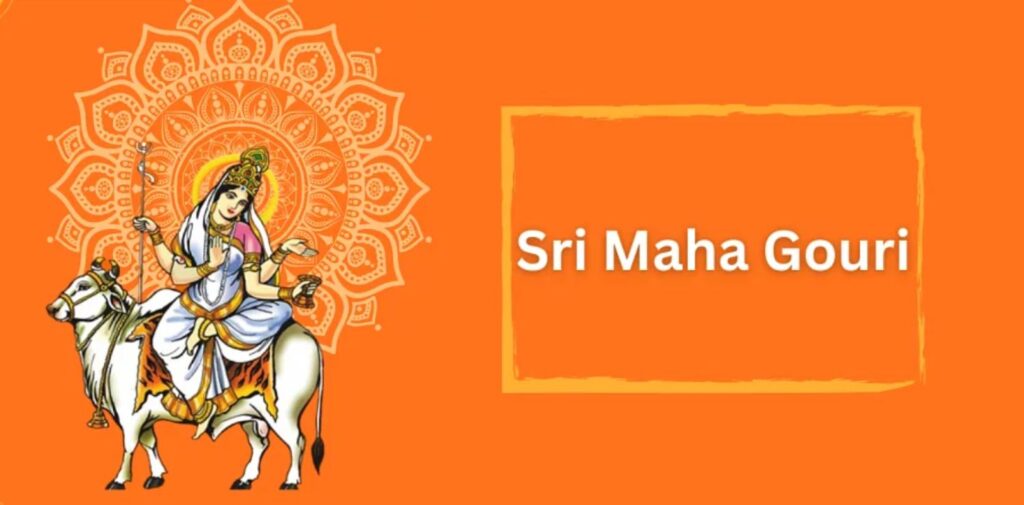
The Story of Goddess Mahagauri
According to Hindu mythology, Goddess Mahagauri is a form that Parvati took to perform penance. It is said that Parvati, in her desire to marry Lord Shiva, undertook severe austerities and tapasya for several years. To show her devotion and determination, she underwent harsh conditions, leading her body to become covered in dust and dirt, turning her complexion dark.
Pleased with her penance, Lord Shiva finally appeared before her and blessed her. He then used the holy waters of the Ganges to cleanse her, restoring her original fair and radiant form. This purified form of Parvati came to be known as Mahagauri, representing the triumph of love, faith, and determination.
Significance of Worshipping Goddess Mahagauri
Worshipping Goddess Mahagauri is believed to bring inner peace and harmony. Her compassionate nature helps devotees seek forgiveness for their wrongdoings and embrace a path of righteousness. People worship her to overcome their past mistakes, eliminate sins, and start afresh.
On this day, devotees also perform Kanya Puja, where young girls, symbolizing the nine forms of Goddess Durga, are worshipped. They are offered food, gifts, and blessings, as it is believed that pleasing young girls on this day please the Goddess herself. This ritual highlights the importance of respecting and valuing the girl child in society.
The Attributes and Symbolism of Goddess Mahagauri
Compassion and Forgiveness: Mahagauri is the epitome of compassion and forgiveness. Her divine energy encourages devotees to forgive others, let go of past grievances, and foster harmony in relationships.
Purity and Inner Cleansing: Worshipping her is said to purify the heart and soul of all impurities. She symbolizes purity in thought, action, and spirit, making her an inspiration for those seeking to lead a life of integrity and sincerity.
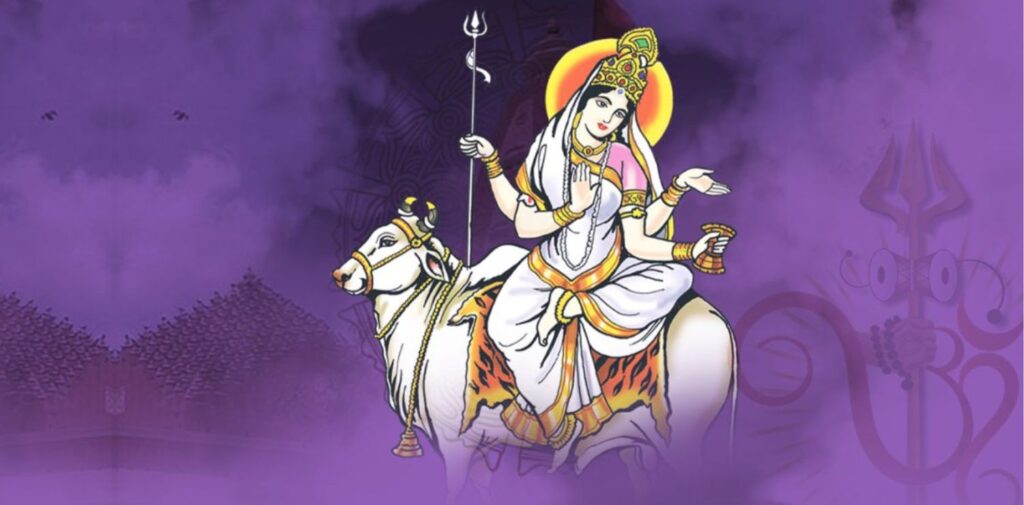
Spiritual Awakening: Mahagauri’s blessings are sought for spiritual growth and awakening. She guides devotees on the path of self-realization and helps them connect with their higher selves.
Symbol of Peace and Stability: The bull, Nandi, which she rides, represents peace and stability. It signifies that with her blessings, devotees can attain emotional and mental stability, leading to a balanced and peaceful life.
Rituals and Celebrations on the Eighth Day of Navratri
On the eighth day, known as Ashtami or Mahashtami, special pujas and rituals are performed to honor Goddess Mahagauri. The celebrations typically include:
Early Morning Bath and Attire: Devotees take a holy bath early in the morning, wear fresh clothes (usually white to represent the purity of Mahagauri), and prepare for the puja.
Altar Decoration: The place of worship is adorned with flowers, especially white ones, which symbolize purity and serenity. The idol or picture of Mahagauri is decorated, and devotees offer fresh flowers, sweets, fruits, and other offerings.
Chanting Mantras and Prayers: Devotees chant special mantras and hymns dedicated to Goddess Mahagauri. Some of the common mantras include:
- “Om Devi Mahagauryai Namah”
- “Shwete Vrishe Samarudha Shwetaambara-dhara Shuchih | Mahagauri Shubham Dadyan Mahadeva Pramodadaa ||”
Lighting of Lamps: Devotees light lamps or diyas to dispel darkness and seek the light of knowledge and wisdom.
Offering Naivedya: Offerings like coconut, halwa, and fruits are made to the Goddess, and later shared as prasad among family members and visitors.
Kanya Puja: As mentioned earlier, young girls (usually nine) are invited to the home, worshipped, and treated with great respect. This ritual symbolizes the worship of the nine forms of Goddess Durga and is considered highly auspicious.
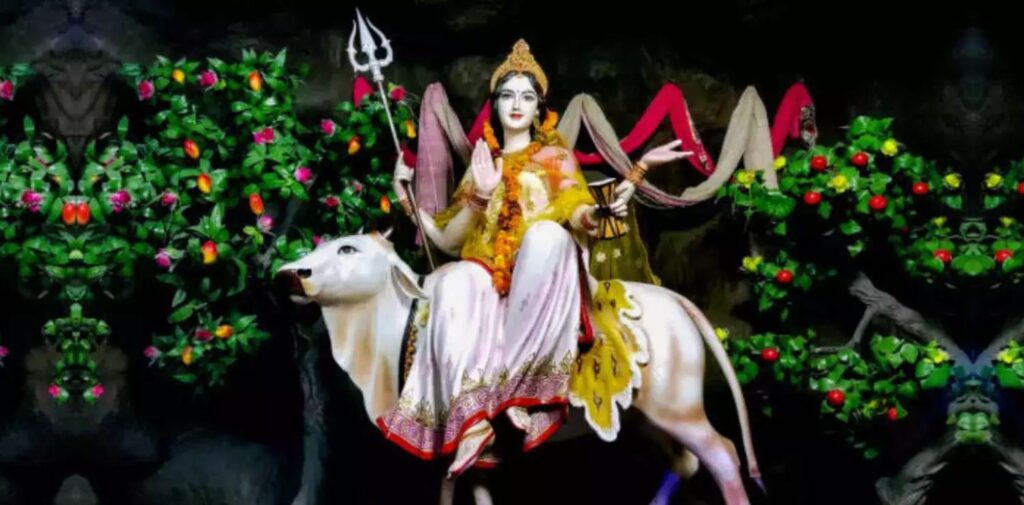
The Relevance of Mahagauri in Modern Times
In today’s world, where people are often caught up in stress, negativity, and conflicts, the message of Goddess Mahagauri is more relevant than ever. She teaches us to forgive and forget, to let go of grudges, and to focus on the positives in life. Her presence brings hope to those seeking a fresh start or wanting to break free from their past.
Her emphasis on purity and spiritual awakening resonates with those on a path of personal development and self-improvement. Whether it is finding peace within oneself or spreading harmony in the community, the teachings and energy of Mahagauri guide us toward becoming better individuals.
Conclusion
The eighth day of Navratri, dedicated to Goddess Mahagauri, is a day to reflect on the values of compassion, forgiveness, purity, and love. As we worship her, we open ourselves to her divine energy, which cleanses our mind, body, and soul. By embracing her qualities, we can lead a more harmonious and balanced life.
On this auspicious day, may Goddess Mahagauri bless all devotees with inner peace, happiness, and prosperity. May she remove all darkness and obstacles from our lives, leading us towards a brighter and more fulfilling future. Let us pray to her with full devotion and seek her blessings to guide us on the path of righteousness and spirituality.

